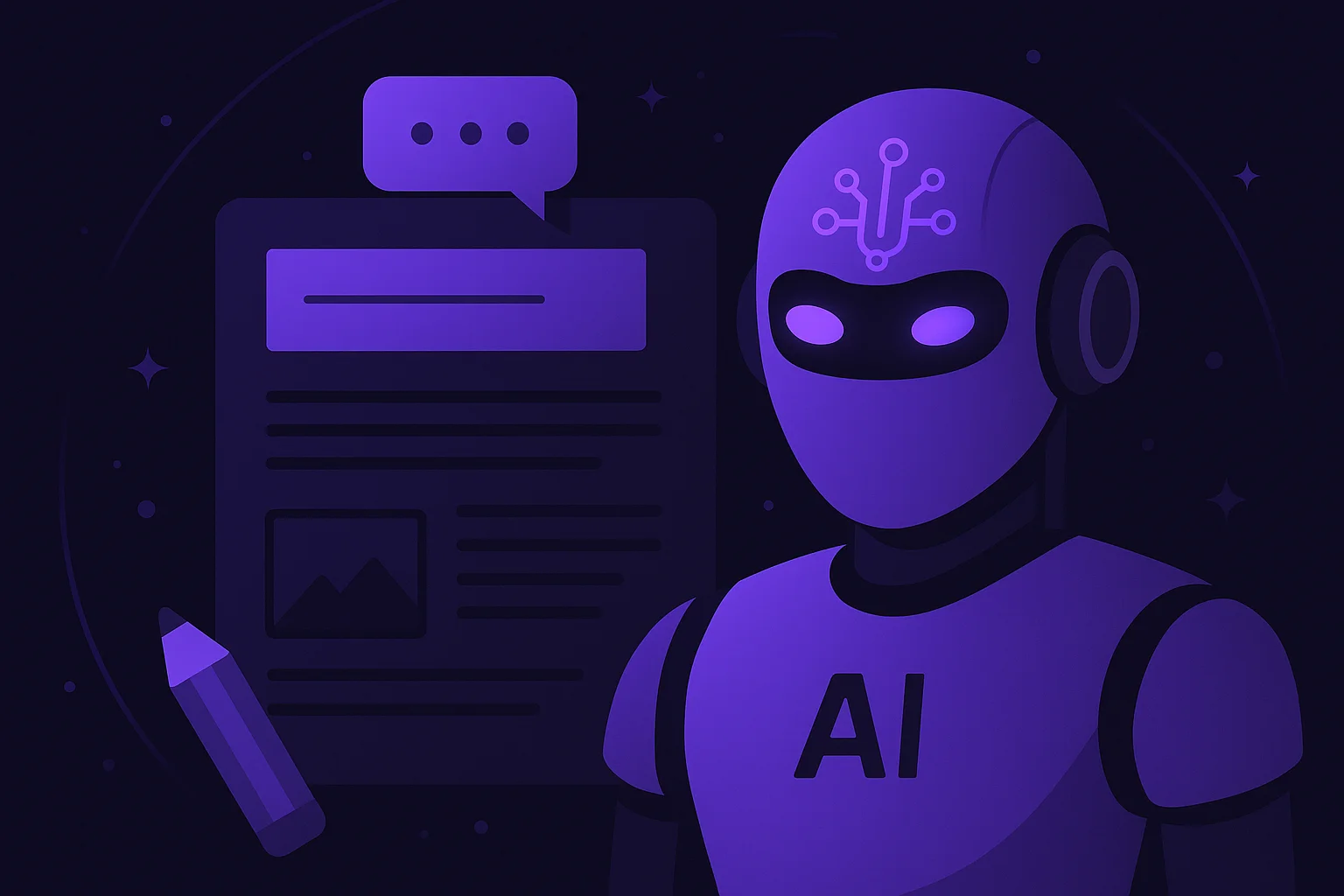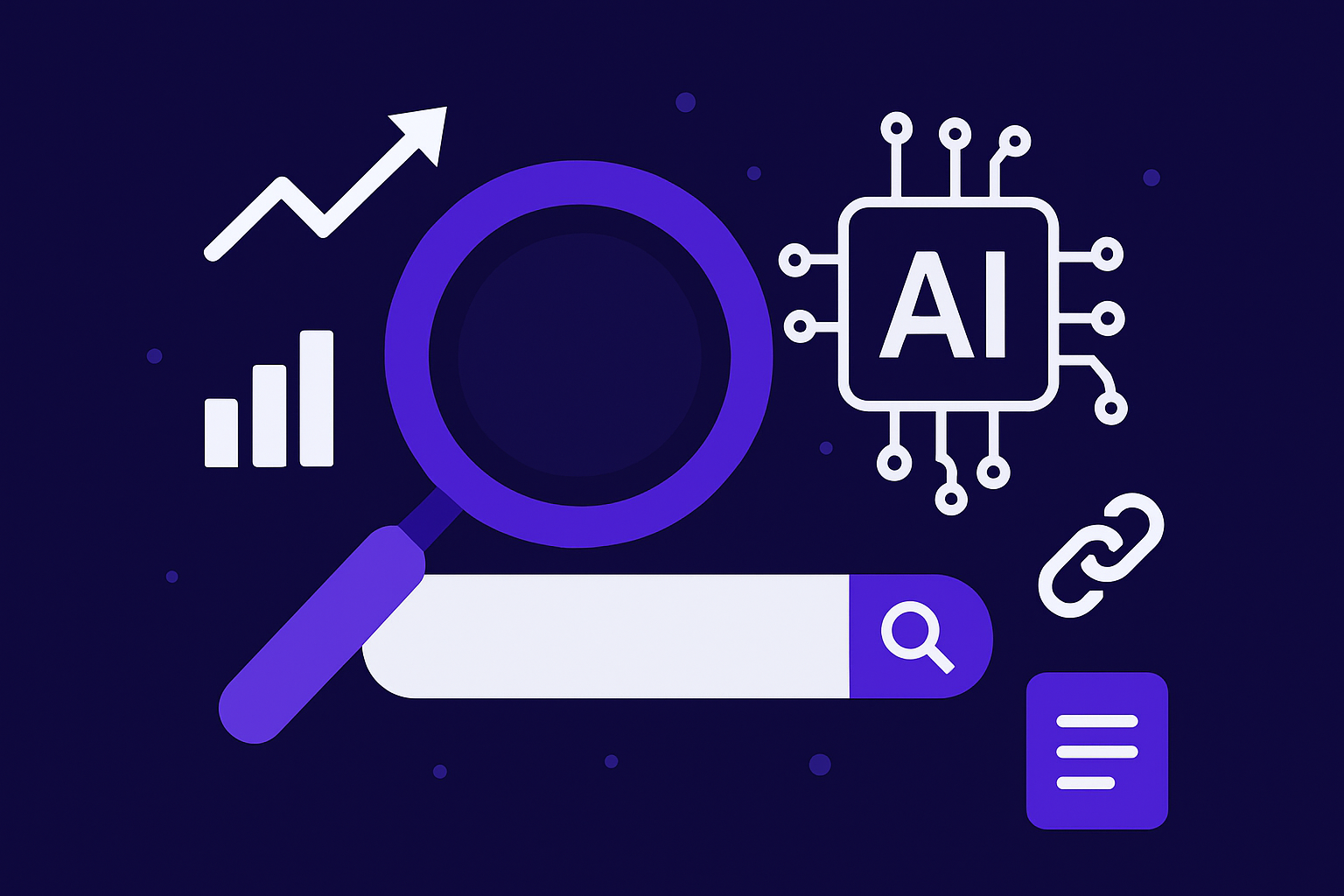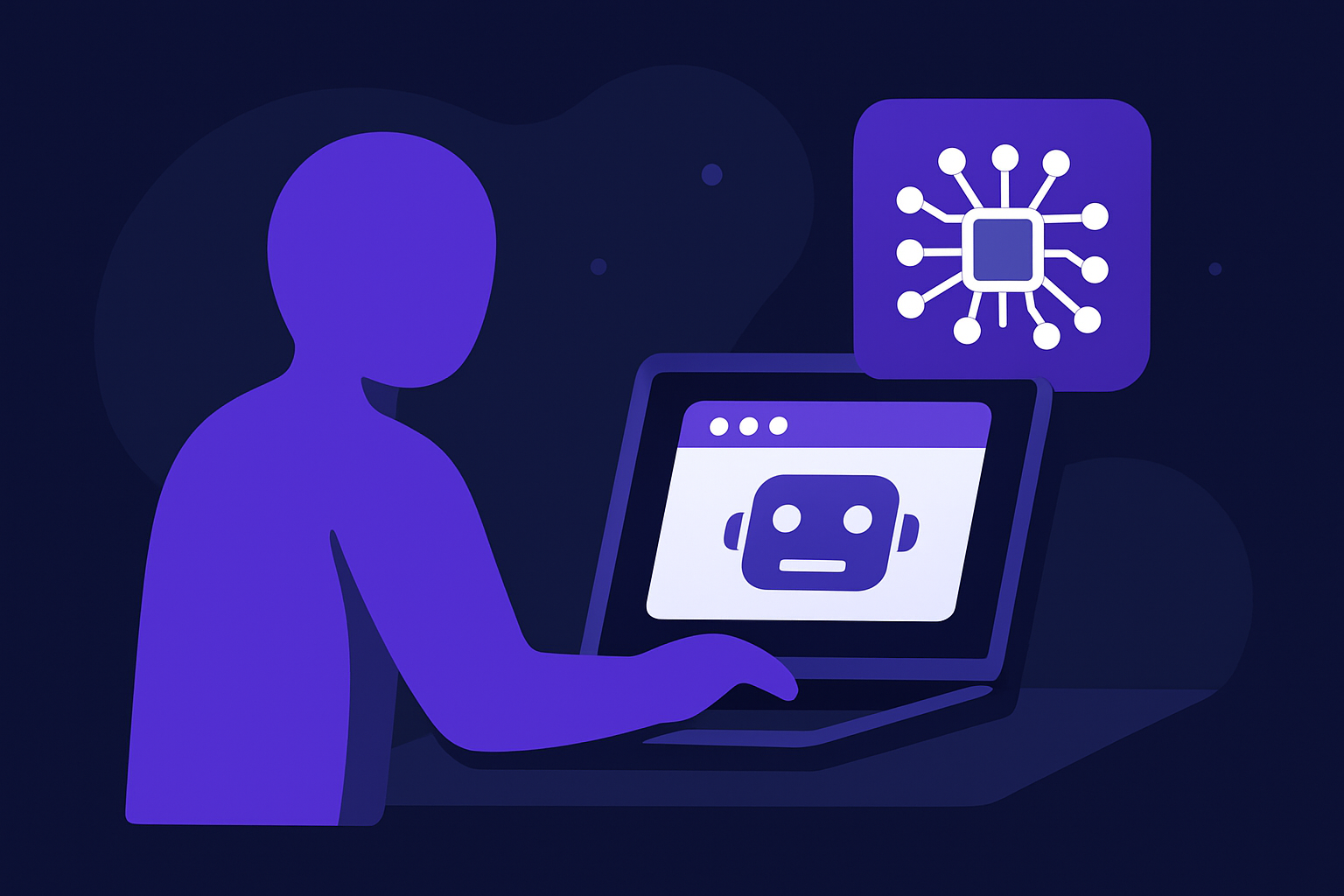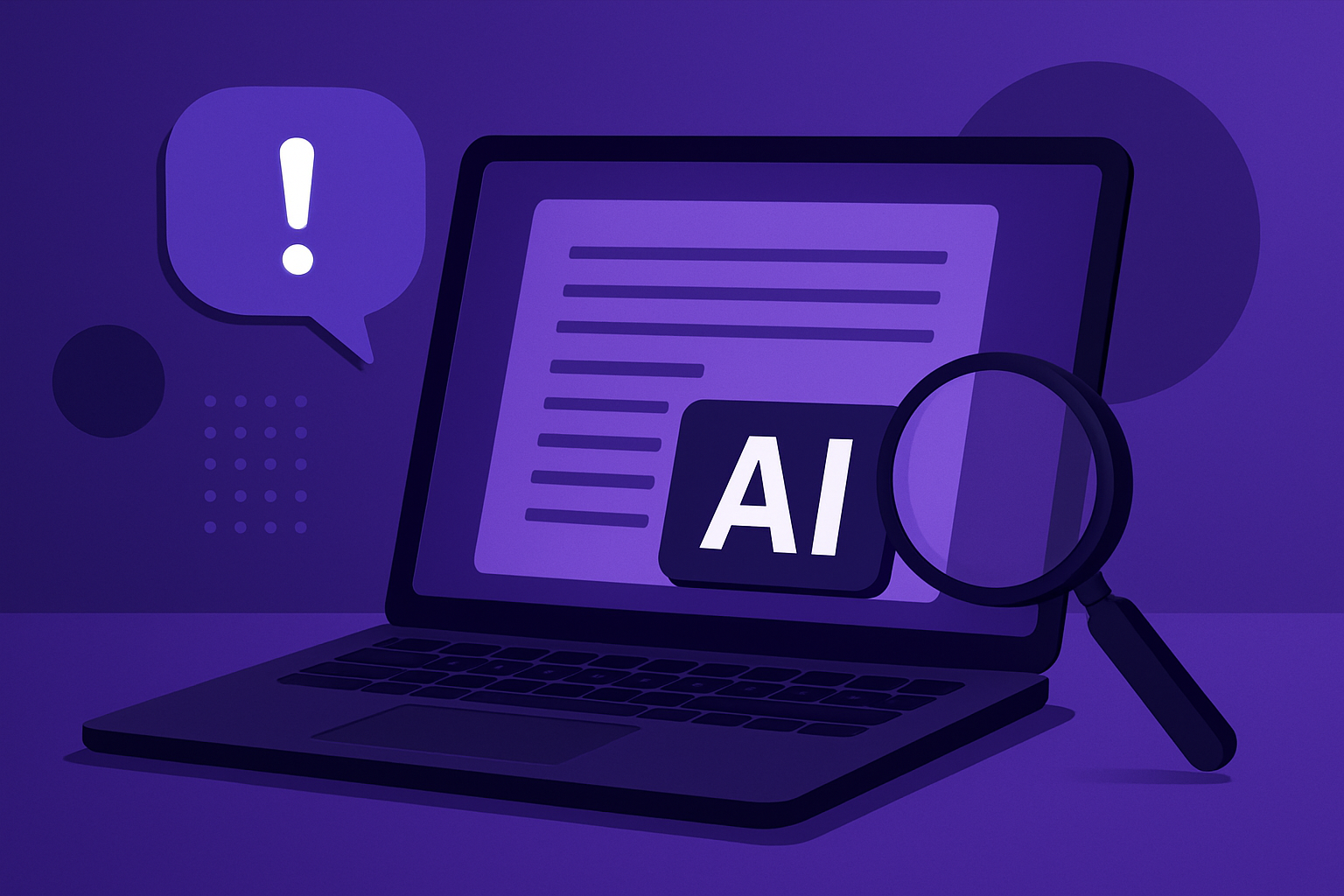The rise of artificial intelligence (AI) content generators has dramatically transformed the way organizations, marketers, and writers approach content creation. As these tools become more advanced, a central question emerges: can AI content generators truly produce high-quality content that meets the standards of today’s digital landscape?
Recent data suggests that AI-generated writing is not only gaining traction but is also outperforming traditional methods across several key metrics. From indistinguishable prose to improved engagement rates, AI-driven content is reshaping expectations, workflows, and outcomes in content marketing and beyond. Let’s explore how and why AI-generated content is making such a significant impact.
The Human vs. AI Writing Debate
One of the most compelling arguments in favor of AI content generators is their ability to create text that closely mirrors human writing. In blind tests, a staggering 84% of readers could not distinguish between AI-generated and human-written content, illustrating how advanced these tools have become. This blurring of lines signals a turning point in content creation, where authenticity and readability are no longer exclusive to human writers.
In academic settings, AI’s prowess is also being recognized. A large-scale study found that ChatGPT-generated essays were rated higher for quality than those written by students, showcasing AI’s growing sophistication in argumentation and clarity. Such findings challenge long-held beliefs about creativity and quality being the sole domain of humans.
However, while AI can convincingly mimic human style, its true strength lies in scalability, speed, and consistency, attributes that redefine high-quality content for the digital age.
Efficiency and Scalability: The AI Advantage
AI content generators can produce up to 10,000 words in the time it takes to make a cup of coffee. Compared to the average human output of 300-500 words per hour, AI’s pace is nothing short of revolutionary. Systems like these can craft 2,000-3,000 words per hour, enabling organizations to publish 10-20 articles daily, far outpacing the 1-2 articles a human writer can reasonably deliver in the same period.
This massive increase in output translates into tangible business benefits. 73% of companies using AI content generators report a significant boost in their content production speed, empowering them to respond quickly to market trends and maintain a robust digital presence. Moreover, automated AI writing tools have slashed the cost of producing blogs by 25%, making content marketing more accessible and scalable.
Editorial workflows also benefit, with AI-generated articles reducing workloads by 35% and cutting content revision cycles by 55%, allowing teams to focus on strategy and creativity rather than repetitive drafting and editing.
Quality Metrics: Engagement, Conversion, and SEO
AI-generated content is not just prolific, it’s effective. Organizations using AI to optimize their content report a 32% improvement in engagement rates, including time on page, shares, and comments. This uptick suggests that readers are not only interacting with AI-generated content but are also finding it valuable and relevant.
Conversion rates tell a similar story. Content optimized with AI tools and analytics demonstrates a 47% higher conversion rate compared to non-optimized content. This direct impact on revenue and ROI is pivotal for businesses seeking to maximize their digital marketing efforts.
From an SEO perspective, websites consistently publishing AI-assisted content achieve 28% higher average search engine rankings. This improvement is attributed to the frequency, relevance, and consistency that AI enables, factors that search engines reward in their algorithms.
Consistency, Personalization, and Brand Voice
Maintaining a consistent brand voice across multiple channels is a perennial challenge in content marketing. AI writing tools address this issue -on: 53% of users report significant improvements in content consistency, and AI text generators have led to a 20% enhancement in brand voice uniformity.
Personalization is another area where AI excels. Organizations leveraging AI tools see a 43% increase in their ability to produce personalized content, catering to different segments and ensuring higher engagement and conversion rates. This capability is essential in today’s competitive landscape, where tailored messaging can make or break campaigns.
Furthermore, 61% of content creators trust AI to ensure grammatical accuracy, and AI-powered tools have improved readability scores for 28% of content, making information more accessible to broader audiences.
Hybrid Workflows: The Best of Both Worlds
Despite AI’s impressive capabilities, the most successful organizations adopt a hybrid approach. 62% of marketing teams combine AI writing tools with human expertise, leveraging the speed and scalability of AI while infusing content with creativity, industry insight, and nuanced brand storytelling.
Nearly 40% of content workflows now include stages where AI reviews human-written content for improvements, or humans review AI-generated content before publication. This collaboration ensures rigorous quality control, maximizes efficiency, and mitigates risks related to tone, accuracy, or sensitivity.
High-performing marketing teams are leading the charge: 71% of teams exceeding their KPIs use AI for content creation and strategy. This synergy between man and machine is setting new standards for what constitutes high-quality content in the digital era.
AI in Journalism, Marketing, and Beyond
AI’s influence spans a growing range of industries. In journalism, 40% of journalists now use AI to generate draft content, streamlining the writing process. AI-generated news articles already make up 15% of digital news, reflecting a growing acceptance in media circles.
Marketers are harnessing AI to produce product descriptions (52% of companies), automate email writing (increasing open rates by 12%), and generate press releases (reducing turnaround time by 25%). These applications not only drive efficiency but also enhance creativity, with a reported 19% increase in creative output among teams using AI generators.
AI’s role in translation, summary writing, and white paper creation is also expanding, with measurable improvements in client satisfaction, reading efficiency, and global reach.
Limitations and Responsible Use
While AI content generators deliver remarkable results, they are not without limitations. AI can occasionally produce generic or factually inaccurate content if not properly guided, emphasizing the importance of human oversight. Responsible use includes regular review and editing by subject matter experts to ensure accuracy, relevance, and ethical standards.
Additionally, AI may struggle with nuanced creativity, cultural context, or highly specialized topics. Businesses must be mindful of these boundaries and use AI as a tool to augment, rather than replace, expert human input.
Ultimately, the strongest content strategies are those that balance AI’s capabilities with human judgment, creativity, and ethical consideration.
In summary, AI content generators have proven themselves more than capable of producing high-quality content across a variety of metrics. From indistinguishable writing styles to dramatic improvements in engagement, conversion, and efficiency, AI is reshaping the content landscape at an unprecedented pace.
As the technology continues to evolve and adoption grows, the most successful organizations will be those that skillfully blend AI’s strengths with human expertise, ensuring content that is not only high-quality but also innovative, relevant, and impactful. The future of content creation is collaborative, intelligent, and, above all, promising.













